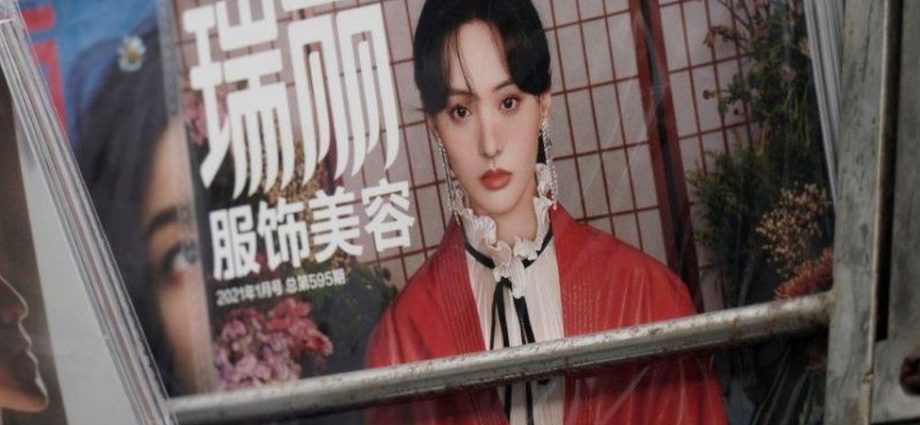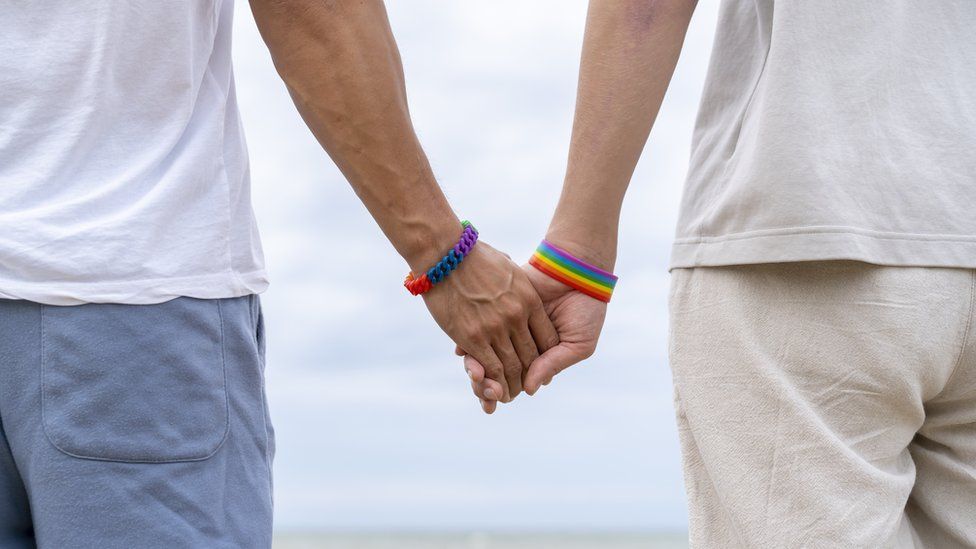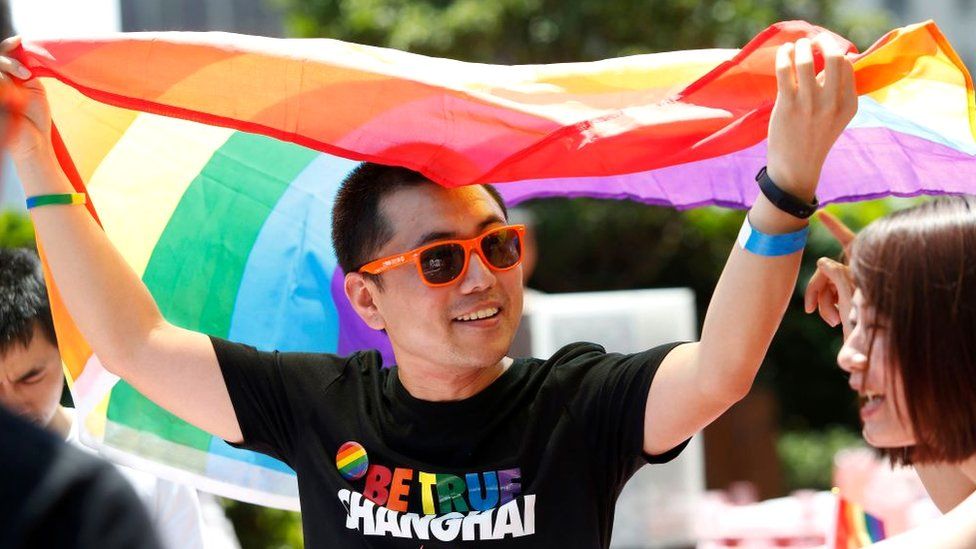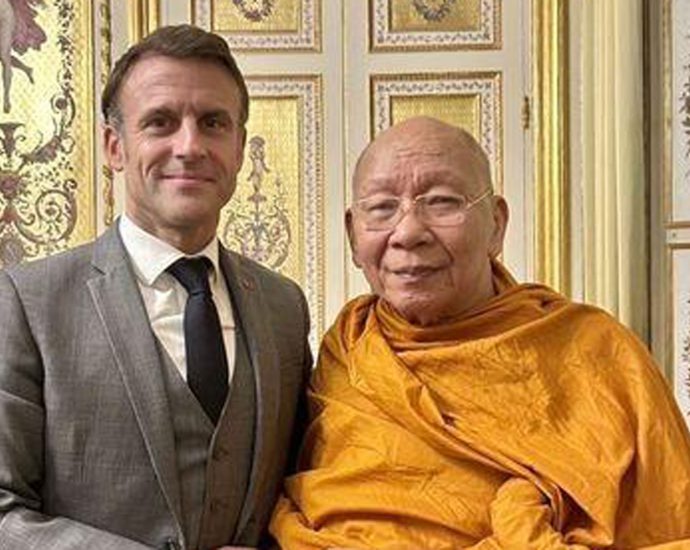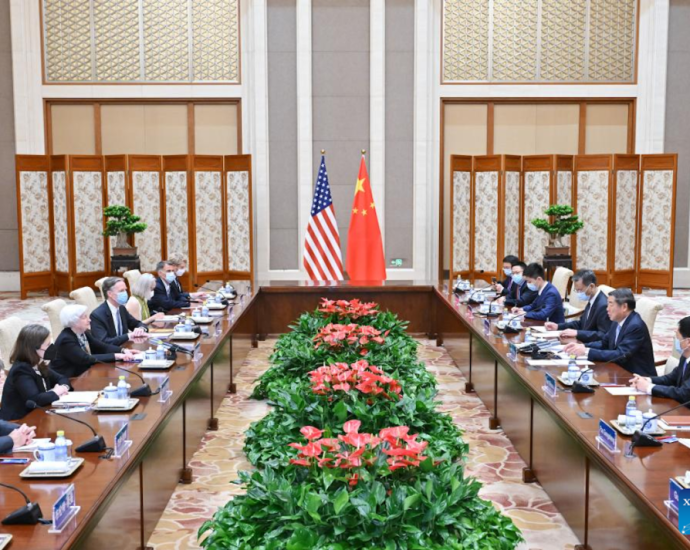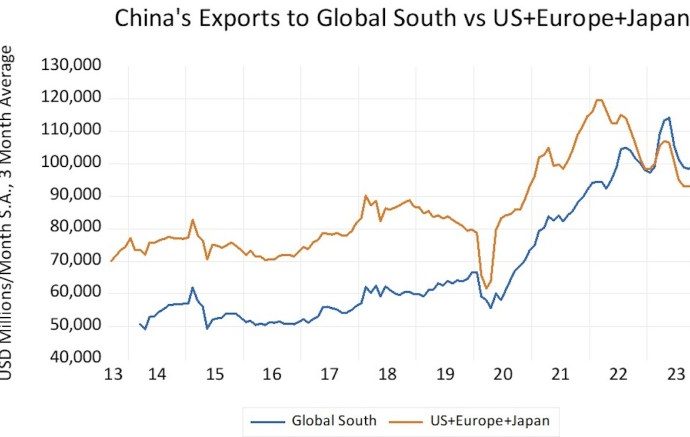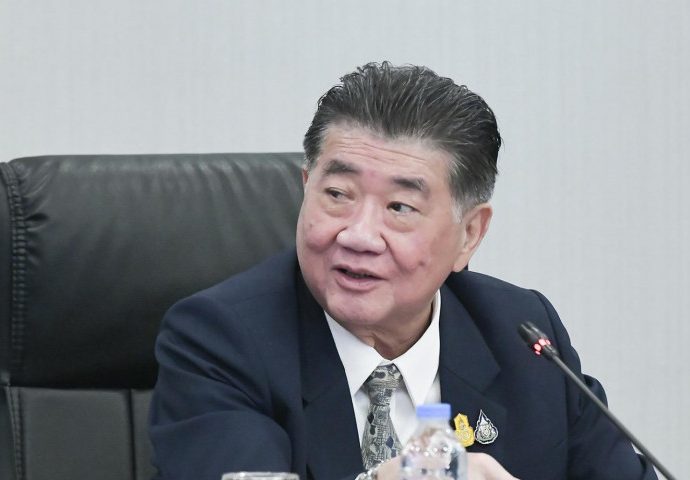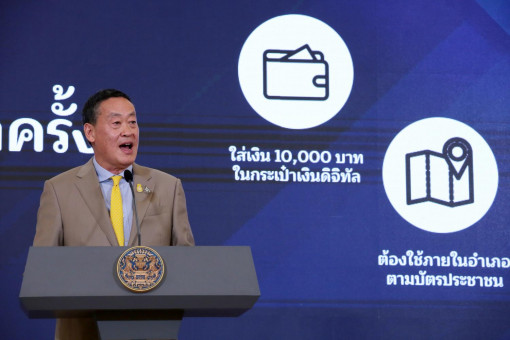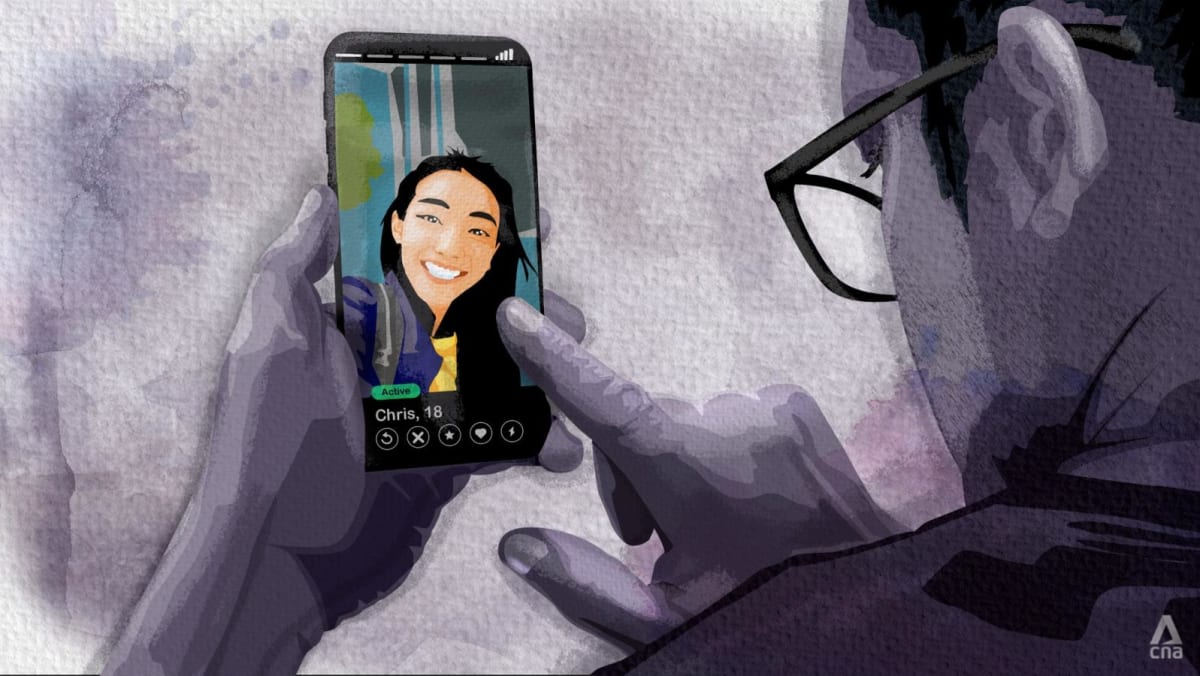Gay Games: Hong Kong delivers ‘rainbows’ despite political clouds
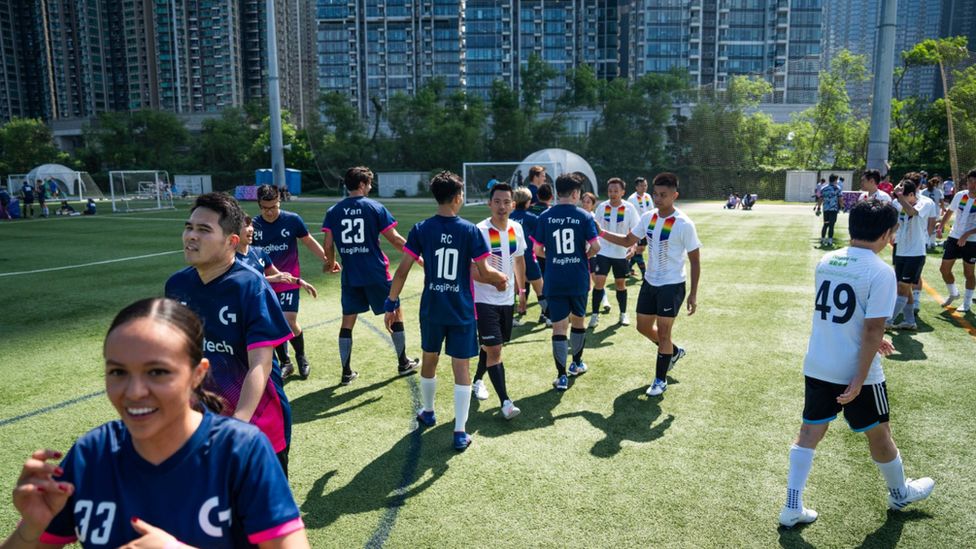 EPA
EPAThere will be disco and dancing at the closing ceremony of the Gay Games in Hong Kong on Saturday, as participants and volunteers celebrate the end of the week-long sporting event that’s featured dragon boat racing and even mahjong among the events,
But amid the jubilation is also a sense of relief for organisers.
The global event – once known as the Gay Olympics- has attracted controversy ever since its origins in 1980s San Francisco, when it was dreamt up by a US Olympic decathlete who wanted to share the spirit of the Games for his community.
But this year, the event celebrating inclusion and diversity has faced new challenges being staged for the first time in Hong Kong – a city whose political freedoms and cosmopolitan character have been hammered by the pandemic and China’s tightened rule in recent years.
The global finance hub with its stunning harbour and mountains had looked very different in 2017 when it won its bid to bring the games to Asia this year- joining a previous line-up of host cities like Paris, Amsterdam and Sydney.
After massive pro-democracy protests rocked the city in 2019, China swept into its semi-autonomous territory with new powers; enacting an expansive law to crack down on political protest or dissent.
Over two years, Hong Kong’s Beijing-backed government has used the National Security Law to stamp out any dissent – prosecuting and jailing about 200 people.
During this time, Hong Kong residents also witnessed how a crackdown on LGBT activism and expression unfolded in mainland China.
Shanghai’s Pride March – the country’s largest – has been suspended since 2021, gay university students have reported discrimination, and earlier this year Beijing’s LGBT centre, established for decades, reported it would shut down for reasons beyond its control.
Nini, a Chinese man in his 50s who came to Hong Kong for the Games, told the BBC he felt Hong Kong’s environment – despite recent changes – was still far more diverse and inclusive.
In China he had fewer and fewer opportunities to celebrate his community, he said. So he decided to participate in the Gay Games, signing up for the mahjong event.
“I don’t seem to have participated in any activities this year, so I want to experience the feeling of a rainbow shining,” he told the BBC.
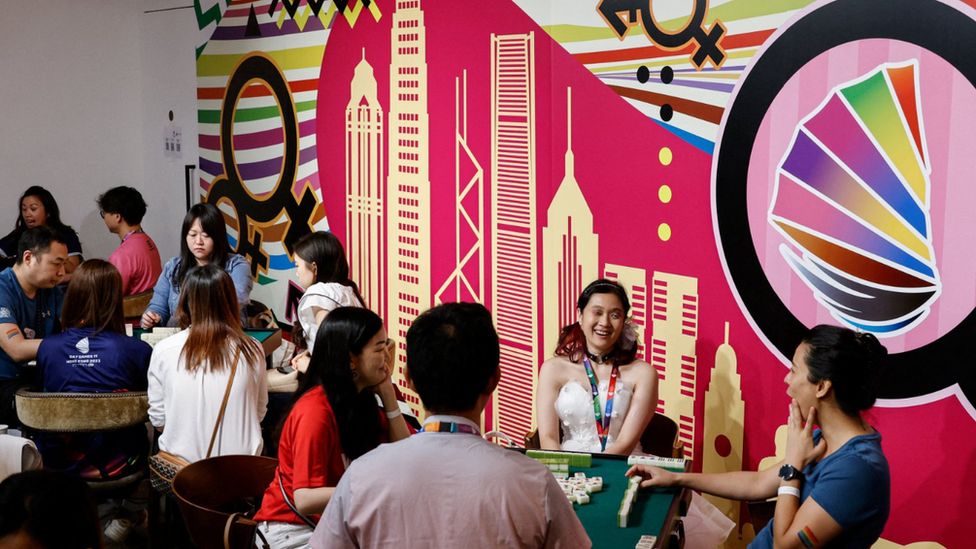
Hong Kong’s reputation however has kept others away. Its stringent Covid response – the city did not fully welcome back foreign tourists until September last year – also meant that the Games originally scheduled for 2022 had to be pushed back a year and another city was appointed as a contingency: Mexico’s Guadalajara was chosen as a co-host.
That has led to a splintering in this year’s global attendance – with just over 2,300 participants – more than half of them locals – attending the Hong Kong Games, organisers told the BBC.
Other participants have gone to the Games in Mexico. Among them was Team Taiwan whose officials explicitly cited the risks of Hong Kong’s National Security Law. In short, they didn’t want their athletes at risk of being arrested, they said.
Such fears of Hong Kong’s environment for gay people were further fanned by pro-China conservatives in Hong Kong’s parliament arguing the Games were a “promotion of the gay movement” and could “involve national security issues involving bad ideologies” – without specifying how exactly.
Some said the Games were a show in favour of same-sex marriage being legalised in the city – a right still denied to LGBT people and underscored by a landmark ruling in the city’s courts this year.
But Regina Ip, one of the few lawmakers who publicly championed the event, stressed to the BBC that support for the Games was not the same as promoting the legalisation of same-sex marriage in Hong Kong.
She also scotched her opponents’ security arguments, noting the Games had proceeded with the full approval of Hong Kong authorities.
“If the event threatened national security, it would be impossible to hold it in Hong Kong,” she told the BBC.
“We are the first city in Asia to host the Gay Games. This is something we are proud of. Many other cities cannot do this.”
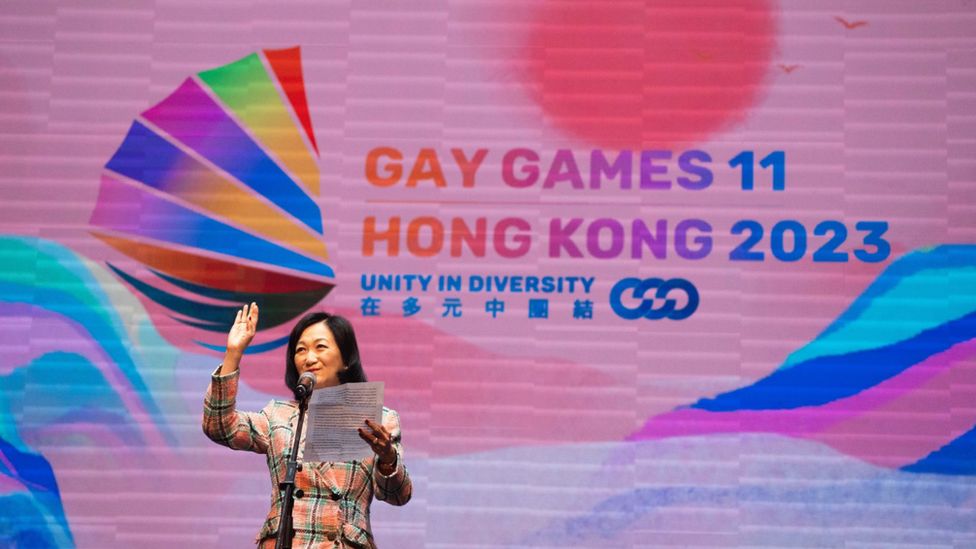
But she contends while there’s tacit approval from the government, there’s been little public promotion.
The city’s tourism board and government departments related to the event – like the Equality Commission – had not done enough to promote it, Ms Ip argued.
And compared to the Mexico Games, where participants took to the street this week in a colourful parade flying rainbow flags – events have been more underground in Hong Kong, where street protests have been all but eliminated since 2020.
The boisterous opening ceremony – where participants entered dancing to Cher’s Believe – was held indoors in the Queen Elizabeth stadium in Wan Chai, the only public arena used in the Games.
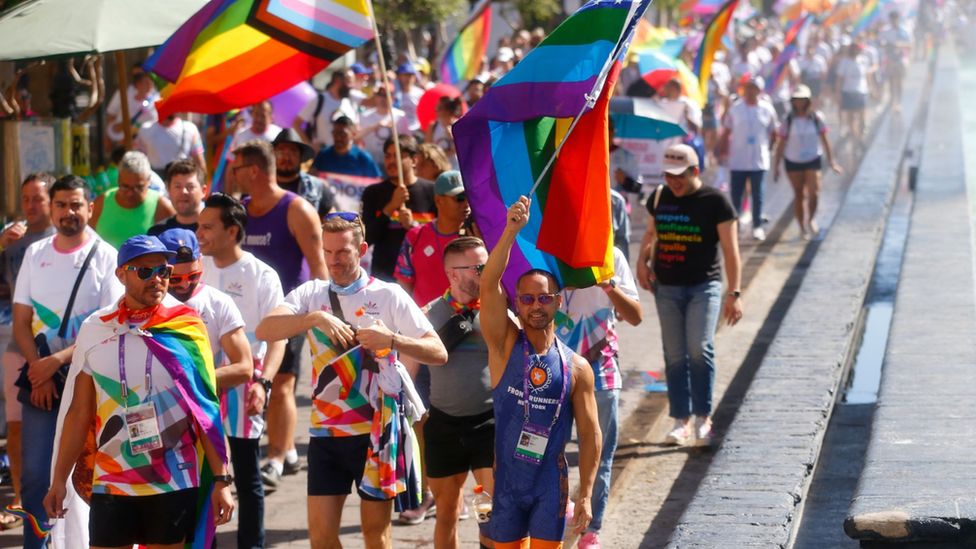
Every other setting for events was in corporate or commercially-leased facilities.
One participant from Australia, who competed in the dragon boat race, said she had thoroughly enjoyed herself at the Games but was surprised and disappointed by the lack of branding around. “It felt like a bit speak-easy,” she told the BBC.
She had seen one or two buses and trams with the logo but not much else compared to other events like food festivals the city had been promoting.
On Hong Kong’s official tourism site too, there was no mention of the Gay Games anywhere on its page.
Another competitor, Mark Tietjen, who travelled from Sydney said he had also harboured doubts about attending given fears the event wouldn’t occur or would be too small.
“And I just made the rash decision one day. But it’s disappointing, because you can see now that I’m here, all the effort that’s gone into making it happen,” Mr Tietjen said. “But obviously there’s lots of people around the world who decided that Hong Kong’s not going to be it. It’s sad.”
Games organisers have been at pains to stress the event’s non-political nature.
“We promote diversity and inclusion through sports, arts and cultural activities. These things are completely legal and consistent with the National Security Law. No objection at all,” the co-chairman of the Hong Kong Games, Lisa Lam, told the BBC before the Games’ start.
But as with any event involving a minority still disadvantaged in society – it’s difficult to separate the politics of struggle from the celebration.
Local gay rights activist Cammy Kwok told the BBC she found it disappointing that organisers had rarely mentioned the context of local gay rights – and the struggle this year for LGBT people seeking marriage and housing rights.
But any event celebrating community was welcome she said, particularly as “we have fewer and fewer occasions.”
-
-
2 September 2021

-

